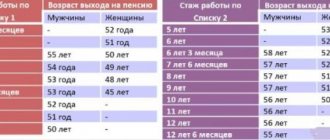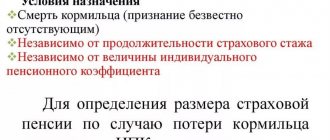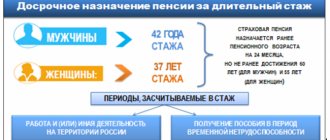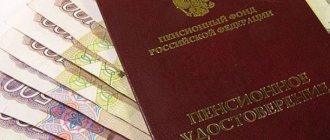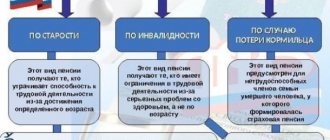Who is entitled to the presidential pension?
According to the law, this type of material support is assigned to persons who held the post of head of the Russian Federation, subject to the following conditions:
- To receive a presidential benefit, a citizen must not receive wages for public service.
- After going on vacation, it is not necessary to be the leader of the country.
- Protein-fat diet
- Tariffs for housing and communal services will be temporarily frozen
- 4 tips to start saving for retirement
Government salaries and pensions
The salaries of senior Russian officials exceed 400 thousand rubles, and those of security ministers are close to 800 thousand rubles. The salaries and pensions of retired officials do not lag behind.
All former Russian prime ministers can qualify for a pension supplement of 55-75% of the remuneration of the current prime minister, according to the 1995 presidential decree on pensions for former senior officials. After the April increase in the salary of Prime Minister Dmitry Medvedev to 570 thousand rubles. ex-premiers can qualify for monthly payments of 313.5-427.5 thousand rubles. The minimum share is due to ex-prime ministers who have worked in government positions from one to three years, the maximum - to those whose experience exceeds three years.
Former prime ministers and other officials who have worked in government positions for less than a year are not entitled to additional payment. An exception is made only for former high-ranking Soviet officials - they receive additional pay (at least 45% of the remuneration of current officials) for any length of service, as follows from the 1996 presidential decree addressed to them.
In addition to monthly payments, ex-prime ministers, like other former top officials, receive a labor pension - on average 17-18 thousand rubles, notes a source close to the Pension Fund of Russia (PFR).
Formally, eight people can now apply for the prime minister's bonus. Four have reached retirement age: Sergei Stepashin (62 years old), Mikhail Fradkov (64 years old), Viktor Zubkov (73 years old) and Evgeny Primakov (84 years old). Of these, only Fradkov continues to hold a government position (heads the Foreign Intelligence Service); this does not give the right to additional payment, as follows from the 1995 presidential decree. In the spring of 2012, Zubkov was appointed special representative of the president for interaction with the forum of gas exporting countries, but he does not hold a government position, and there is no such post in the register of positions in the federal civil service. This means that Zubkov can receive a prime minister's supplement.
Primakov and Stepashin have the right to the maximum prime minister's bonus (427,500 rubles) - the former heads the board of directors of a commercial company, his total experience in holding government positions is close to ten years; the second is the chairman of the supervisory board of the state corporation Fund for Assistance to the Development of Housing and Communal Services. Stepashin performs his duties on a voluntary basis; he is neither a civil servant nor a person holding a public office.
How is it calculated
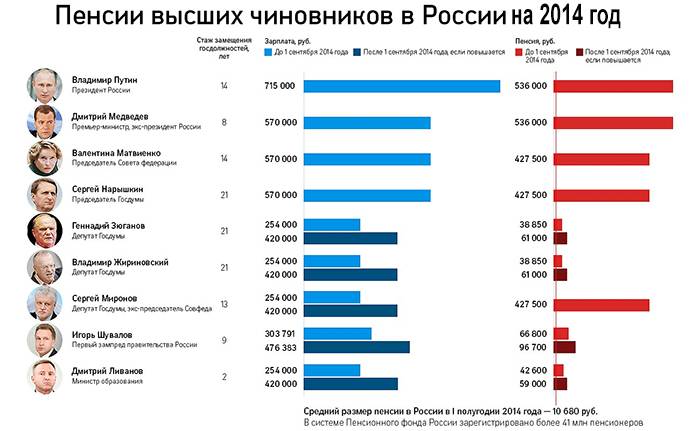
The retirement age for civil servants is 65 years. After registration of the right to a well-deserved rest, the head of Russia receives an allowance equal to 75% of his earnings. The law provides for annual indexation of presidential payments.
For many top-level officials, the amount of pension accruals depends on the length of their tenure. For example, if the prime minister held his position for 3 to 6 years, he can receive financial support, which is 55% of his earnings. This norm is invalid for the head of the Russian state. The amount of the pension benefit is fixed, there are no additional payments or bonuses determined by the time of work.
- Sour cream cream for cake - step-by-step recipes for making it with butter, cottage cheese, banana or gelatin
- Growing strawberries from seeds at home
- All additional payments are going to be removed from the minimum wage
The president’s pension is half a million a month: how much do VIP officials receive after resignation?
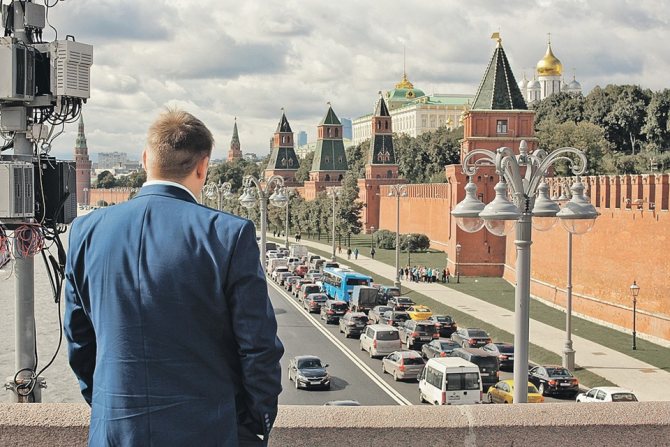
What benefits and privileges are granted to VIP officials after resignation?
Photo: Timur KHANOV
After the high-profile resignation of Kuzbass Governor Aman Tuleyev, it became clear that he was entitled to considerable privileges. Readers of Komsomolskaya Pravda immediately asked questions: why then do other governors resign? What about ministers and deputies? Let's be honest, we had to dig through a bunch of laws and make a hundred calls. Many benefits were generally classified as “For official use.” But we managed to find out something. Let's start with the top officials of the country.
ACCORDING TO YELTSIN'S ACCOUNT
The largest number of benefits after resignation are granted to the President of Russia. In 2001, a law was passed, which is called: “On guarantees to the President of the Russian Federation, who has terminated his powers, and members of his family.” It is clear that at that time this primarily concerned Boris Yeltsin, who had resigned. But the list of benefits has not changed since then. And do not forget that the president is also the Supreme Commander-in-Chief, who has access to all state and military secrets of the country. Therefore, the law guarantees him:
lifelong state protection;
special communications;
transport;
special medical care, including sanatorium-resort treatment;
use of official halls of airports and train stations;
staff of assistants;
state dacha for lifelong use.
In addition, the life and health of the ex-president are subject to compulsory state insurance. And he cannot be held criminally liable for actions he committed during his presidency.
The right to a lifetime allowance of 75% of the president’s monthly salary is also stipulated separately. Typically, monetary remuneration is only part of the salary of a high official (analogous to a salary), on which allowances, bonuses, and coefficients are added. The only exceptions are the president and prime minister; for them, monetary remuneration is the entire amount of income, the entire salary. As the Ministry of Labor explained to KP, as of January 1, 2020, the president’s monetary remuneration is 741,502 rubles per month. Consequently, after resignation he will receive 556,126 rubles.
MINIMUM PREMIER – 326 THOUSAND
The head of government is guaranteed a decent life after resignation by a decree of 1995. His additional payment to his pension also directly depends on his monetary reward, which today is equal to 593,205 rubles. But unlike the president, the prime minister’s pension bonus also varies depending on the length of time he has been at the head of the government. Worked as prime minister from 3 to 6 years - receive 55% of the monetary remuneration. Over 6 years - already 75%. Thus, each of the retired prime ministers claims an increase from 326 to 444 thousand rubles.
“Another nuance: with the current prime minister there is a special story,” Nikolai Kalmykov, director of the RANEPA expert and analytical center, explained to KP. — After all, from 2008 to 2012, Dmitry Medvedev was president, which means that in retirement he will be subject to the same rules as the former head of state. Special communications, state dacha, state security, transport and the same 75% of the president’s monetary remuneration.
All former heads of government can count on the prime minister's pension supplement (provided that they do not hold another government position at this time). Sergei Stepashin, Mikhail Fradkov, Viktor Zubkov, and even... Mikhail Kasyanov, who was prime minister for almost 4 years, can apply for it. So the now scandalous oppositionist can easily count on an additional 444 thousand to his pension. True, we were unable to find out whether Kasyanov, who turned 60 in December, received a prime minister’s pension.
The same decree also determined the remuneration for deputy prime ministers. For the first “vice” it is 101 thousand rubles, for ordinary deputy chairmen of the government - 96 thousand. They can receive a pension from 55 to 95% of these amounts, depending on how long they worked in these positions.
MAXIMUM MINISTER - 81 THOUSAND
To earn an increased pension, a federal minister must serve at least 3 years in his post. The minister’s monetary remuneration today is 84 thousand 774 rubles per month. Although with all the allowances, their full salary varies from 443 thousand for the head of the Ministry of Construction to 1.7 million for the head of the Ministry of Finance. But these bonuses do not affect pensions. Was a minister from 3 to 6 years - receive 55% of your salary (46.6 thousand rubles) towards your pension. From 6 to 10 years - already 75% of the pension (63.6 thousand rubles), from 10 to 15 - 85% (72 thousand rubles), and if you spent more than 15 years in the ministerial chair, then that’s all 95% (almost 81 thousand). True, as the Pension Fund of Russia explained to KP, the basic amount of the fixed basic amount of labor pension - 4982 rubles - will be deducted from any additional payment.
“In addition, there are issues of medical and sanatorium services that were provided to ministers on the day of termination of office,” adds Nikolai Kalmykov. — There may be additional social guarantees. And not only: keep in mind that many have serious access to state secrets, and I would be scared if, for example, the former Minister of Energy, after his resignation, went to private traders because of the need to earn money...
Their own monetary remunerations have been established for the presidential envoys (84,777 rubles), the head of the Central Election Commission (103,865), the Secretary of the Security Council (106,673), etc. Here, the pension rules are the same as for ministers: you can claim additional payments of 55% of these amounts after 3 years of service.
A separate topic is security ministers. Military pensions have always been calculated according to different rules than civilian ones. It takes into account the length of service, rank, and access to state secrets. The same Minister of Defense, for example, is one of the three carriers of the nuclear briefcase.
DEPUTY SUPPLEMENTS
State Duma deputies and members of the Federation Council have the same status as ministers, and the time they spend in parliament is counted as civil service length. The monetary remuneration of deputies is the same as that of ministers - 84.7 thousand rubles (not to be confused with the full salary that deputies now have - about 400 thousand per month). And they also have the right to an additional payment to their pension. But the rules here are stricter: in order to receive 55% of your salary towards your pension, you need to sit in parliament for at least one term (currently it is 5 years).
And only old-timers who have served in the State Duma for more than 10 years can count on a maximum increase of 75%. Gennady Zyuganov or Vladimir Zhirinovsky, for example. But Sergei Mironov is entitled to a much larger pension - he headed the Federation Council for almost 10 years, and the speakers of both houses of parliament have a monetary remuneration equal to that of the prime minister.
“As far as I know, former members of parliament receive about 60 thousand rubles in additional payments to their pensions,” ex-State Duma deputy Vadim Solovyov confirmed to KP. — Those who retire from parliamentary activities are assigned to the special clinic.
“I still have a few years before I retire,” ex-deputy Andrei Tumanov told KP. “And we have no other privileges left: I paid for the metro and tram then, just as I do now...
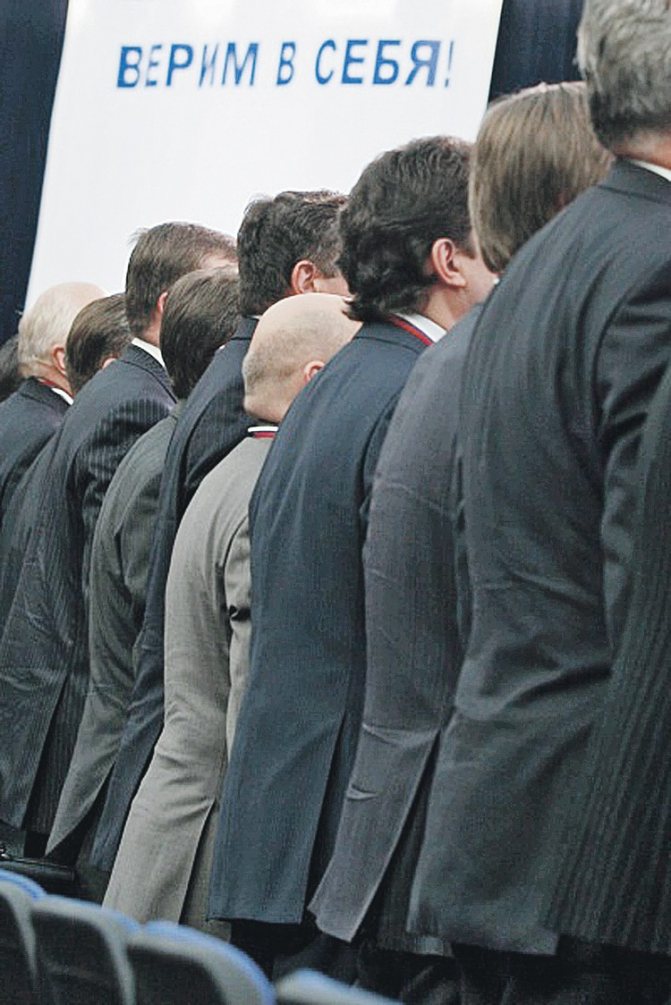
Officials believe that even in the event of resignation, the state will cover their slender rear with benefits and bonuses... Photo: Victor KHABAROV
CALL TO EX-MINISTER
Evgeny YASIN, head of the Ministry of Economy in 1994 - 1997:
I don’t keep track of how much I was credited...
“All I have left is my pension.” Taller than normal, but not that big.
- More than 100 thousand?
— Less... But I work as a research director at the Higher School of Economics and don’t keep track of what’s going on with my pension. I know that I have an account with Sberbank, but since I changed my place of residence, I did not apply there.
— Are there any other privileges left?
“It was a different time then, I didn’t have any privileges.” Yes, the car was official. But when I left, it was taken away from me, and that’s all...
HOW FORMER HEAVYWEIGHT GOVERNORS LIVE NOW
Tuleyev became a deputy
Aman Tuleyev, who has been at the head of Kuzbass for more than 20 years (already nominated to regional deputies), according to the local law “On the People's Governor” of 2011, will receive a pension of 50 thousand rubles with indexation.
Tuleyev became a deputy. Photo: Administration of the Kemerovo region
At his free disposal is a guarded residence in the village of Mazurovo, 17 kilometers from Kemerovo in the local resort area. He was provided with a personal assistant and an office in the regional administration building. Medical support is provided.
Luzhkov sows buckwheat and does not take advantage of benefits
Photo: Evgenia GUSEVA
Luzhkov sows buckwheat and does not take advantage of benefits
Yuri Luzhkov, who led the capital for 18 years, was dismissed in September 2010 “due to loss of trust.” Moscow did not pass special laws on the maintenance of the ex-mayor. Moreover, according to Federal Law No. 166-F3 “On State Pension Security” dated December 15, 2001, Yuri Mikhailovich was entitled to 75% of his salary as mayor (about 250 thousand rubles). Among the bonuses, the former were guaranteed: free medical insurance (including dental treatment) and medications, vouchers to sanatoriums and the use of VIP zones at airports, the presence of special communications, a personal car with a driver and security, and lifelong use of a state dacha. Luzhkov himself, who sows buckwheat near Kaliningrad, reported that he does not use most of these benefits (for example, state dacha).
Rossel receives a salary in the Federation Council
Photo: Alexey BULATOV
Rossel receives a salary in the Federation Council
Eduard Rossel led the Sverdlovsk region intermittently from 1991 to 2009. After which he was sent to the Federation Council, where he became one of the senators-patriarchs. Several years ago, deputies of the legislative assembly of the Sverdlovsk region passed a law that guaranteed former governors an “increase in pensions.” According to it, when filling the position of governor from 5 to 7 years, the pension was assigned in the amount of 135% of the monthly salary, when filling from 7 to 12 years - already 155%, from 12 to 15 years - in the amount of 175%, over 15 years - 195%. Rossel received 14 purely gubernatorial years and a salary increase of 175%. On the eve of leaving his post, his salary was slightly more than 220 thousand (but this is the salary together with the bonus). By the way, the declared income of Senator Rossel in 2013 was 13 million rubles...
Shaimiev was entitled to a bonus of 4.4 million
Photo: Anatoly ZHDANOV
Shaimiev was entitled to a bonus of 4.4 million
According to the law “On public positions of the Republic of Tatarstan” of 2006, the head of this region has the right to “lifetime salary in the amount of 80% of the monthly salary of the President of the Republic of Tatarstan.” Thus, the ex-president of Tatarstan Mintimer Shaimiev (who spent 19 years in office) was entitled to about 350 thousand rubles. A one-time payment upon resignation was also provided - 10 times the monetary remuneration of the head of Tatarstan. That is about 4.4 million rubles. Bonuses include the use of a state dacha and “a number of material guarantees for family members.”
Rakhimov is not expecting guests at the resort
Photo: GLOBAL LOOK PRESS
Rakhimov is not expecting guests at the resort
Murtaza Rakhimov ruled the region for 18 years and resigned as president of the republic in July 2010, heading the Ural charitable foundation. The State Council of Bashkiria adopted a law on guarantees for the former head of the region and his family. The insurance part of Rakhimov’s pension was multiplied by a factor of 3.18 and amounted to about 100 thousand rubles. The former head of the region and his wife continued to receive free medical care. But there was a problem with the wife’s right to free travel to her husband’s vacation spot and back. Kurultai (Parliament of Bashkortostan) - in 2020, excluded this item from the benefits. But a clause was introduced regarding compensation in the amount of an annual salary in the event of “damage to health.” The ex-head was not provided with security.
P.S
Nikolai STARIKOV: Gorbachev didn’t steal, but the USSR disappeared
Igor EMELYANOV
Komsomolskaya Pravda asked the famous writer and political scientist on the air of Radio Komsomolskaya Pravda (97.2 FM): does the country need to spend money on a decent life for officials?
IT WILL NOT WORK LIKE IN GREECE
— How should officials be paid for their work?
— There are three options:
1) Symbolic salary. A member of the Moldovan parliament has it for 50 euros. There is a great opportunity to buy deputies wholesale and retail.
2) No payment. In Ancient Greece, holding a number of positions was free. That is, only a rich man could hold a position.
3) The sovereign's servants receive a salary that allows them to carry out their duties and not think about anything else.
I am a supporter of the third option.
— That is, a salary that allows you not to take bribes?
— So that there is no temptation to lobby someone’s interests. And then imagine - an official retires. Question: Should the outgoing governor maintain a decent level of income? Must. But the situation varies greatly from region to region. But there should be a standard, all-Russian payment.
“But some headed a rich region, and some a poor one.”
- But that doesn’t matter. Governors should effectively manage the region, not make money. But benefits should be given if a person worked honestly, there are no complaints against him. And if you are fired due to “loss of trust,” this should also affect bonuses after resignation.
THREATS TO EX
— Why do retirees need security?
— When a person harshly defends the interests of the region, he makes many enemies. He will cross the path of both criminal and political circles more than once. And what, with the end of his tenure in office, should he be left to them to be devoured? I think Russia will not become poorer if ex-governors are protected. We do not have thousands of former regional heads, but several dozen. Some other benefits may need to be crossed out so that people don’t have questions.
— Is a salary of 500 thousand or a million normal for a governor?
- We need to pay enough so that the person in this position does not steal. Although it happens that the worst thing is not even this. Mikhail Gorbachev stole nothing, but the country disappeared. If governors go to this position to earn money, they end up poorly. An excellent governor should also think about the fact that he can aspire to our William Shakespeare - to the highest post in the state. There are historical examples. Stolypin was a governor - he became prime minister and went down in history.
WHY DO THEY NEED SPECIAL COMMUNICATIONS?
— Should retirees have special communications so they can call the Kremlin?
— A question that does not have a clear answer. It's always individual. The person at the head of the state always decides for himself with whom he would like to talk among those who have “retired,” and with whom there is no need to talk. The level of pension, the availability of a car and security - this should be guaranteed to the retiree, but not special communications.
What content is required for the President of the Russian Federation?
In 2020, the monthly salary of the head of state is 715,500 rubles. If he retires before the next indexation of payments to civil servants, then the amount of presidential support will be 715,500 x 75% = 536,625 rubles.
As the leader of the country, the Supreme Commander-in-Chief, the President of the Russian Federation has access to state secrets. After resignation, measures must be taken to protect these secrets. The law provides for opportunities to preserve the health of the former head of Russia.
The privileges of the President after retirement include lifetime granting to him:
- security;
- special communication;
- transport;
- medical services in special medical institutions for civil servants;
- official assistants;
- state dacha.
Pension of the President of Russia
Former Russian presidents are not covered by the 1995 decree; a special law was adopted for them in 2001. An ex-president who leaves all government positions is guaranteed a lifelong salary of 75% of the remuneration of the current head of state. According to estimates, this share now exceeds 536 thousand rubles. (in April, Vladimir Putin increased his salary 2.75 times, to 715 thousand rubles). Ex-President Dmitry Medvedev may also qualify for the same payment.
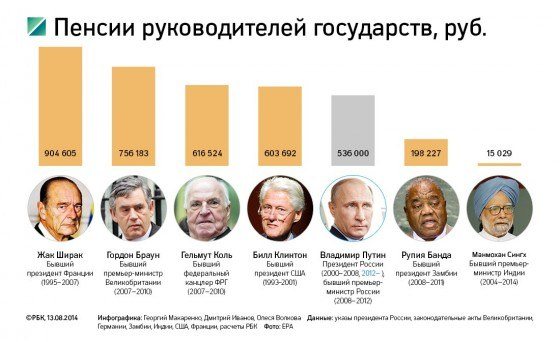
The law on guarantees for the former president was adopted for Boris Yeltsin. After the death of the ex-president in 2007, his widow Naina Yeltsina received the right to a benefit of six minimum old-age pensions. From January 1, 2020, it will amount to 21,760 rubles, RBC calculated: at the end of the current spring session, the State Duma changed the law, assigning Yeltsin a survivor’s benefit.
What is the pension of the heads of Russian cities?
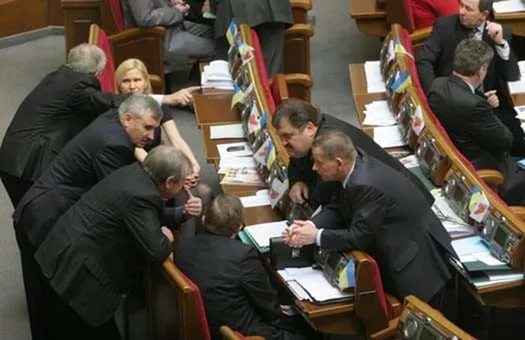
The mayors of Russian cities do not live comfortably, that’s for sure:
- In 2020, the head of Khanty-Mansiysk declared an official income of 127,000-213,000 rubles, while in the region the average pension does not exceed 18,200 rubles.
- The head of Yekaterinburg receives money based on length of service from 107,000 to 156,000 banknotes in national currency. Pension provision in the region is 13,650 rubles.
- The mayor of Voronezh has aimed at even greater financial assistance - the official receives from 190,000 to 320,000 rubles in 2020. The most interesting thing is that old people have an income of no more than 11,000 rubles.
- The head of Ulan-Ude also has good appetites - an income of 190,000 - 260,000 rubles with an average pension in the region of 12,700 rubles.
- The head of Rostov-on-Don is modest compared to previous heads of Russian cities; state support is in the range of 122,000 - 166,000 rubles.
Given the miserable incomes of Russians, where do officials get such luxurious pensions from? According to the law, those who have worked in a leading position for at least 6 years receive the right to high monetary support from the state. In some regions, it is enough to work for only 3 years, and in some cases even 1 year.
Indexation of pensions for deputies
Indexation of pension-type remuneration for persons in the category we are considering is carried out taking into account the expected future level of inflation.
So, for the first time since 2014, indexation was carried out only last year, 2020, and payments of funds to citizens of interest to us increased by a total of 4%, it turns out that pension provision also increased.
It turns out that, despite the rather lenient conditions for receiving a pension, which apply to deputies in one way or another, we can say that over time it becomes more and more difficult for them to earn money and a pension, although compared to how difficult it is for ordinary citizens, nothing to say.
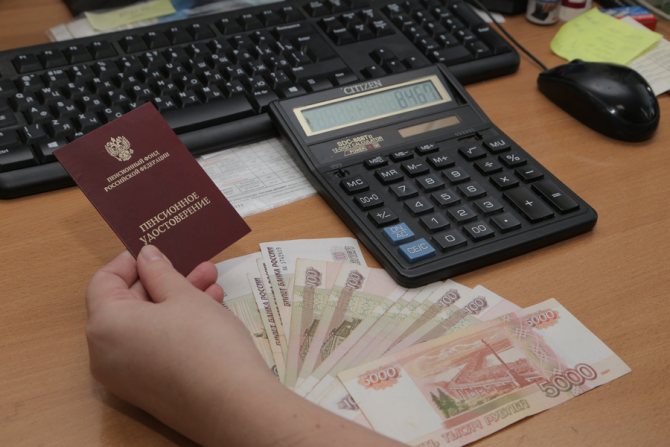
Indexation allows pensions to remain proportional to prices for services and goods in the country
Retirement age of deputies
In 2020, a pension reform was carried out, which affected all individuals, as well as people holding senior positions in the public service. Therefore, even deputies must follow certain rules if they want to retire.
They can work even after 60 or 65 years of age, since their work experience is taken into account when assigning their pension. Length of service is gradually increasing after the adoption of changes to the pension reform. If previously it required 15 years, now the length of service is 20 years.
The deputy will be able to go on vacation after accumulating the required length of service and reaching the age of a pensioner. After reaching the age of 60 or 65 years, an official may not cease his activities. He has the right to occupy a previously obtained position, receiving an official salary and increasing his length of service.
The salaries of Putin and Medvedev will increase by 4.3% from October 1, 2020
In accordance with Decree No. 481, signed on October 7, Putin’s birthday, the monetary remuneration of the President of Russia and the Prime Minister “in order to ensure social guarantees” increases from October 1, 2020 by 4.3%.
In May, the press secretary of the Russian leader, Dmitry Peskov, commented on information about the growth of salaries in the Kremlin and the government.
According to him, employees of the presidential administration and the government apparatus were returned 10% of their salaries, which were cut several years earlier.
President Vladimir Putin, according to the declaration, earned just over 8.6 million rubles in 2020. Prime Minister Dmitry Medvedev earned 9.9 million rubles.
According to Rosstat, the average salary of federal civil servants in 2018 increased by 5.4%, exceeding 126 thousand rubles. This is three times higher than the average salary of Russians at the end of last year. The highest paid federal officials were employees of the government apparatus.
Officials' pensions
The chairmen of the Federation Council and the State Duma, Valentina Matvienko and Sergei Naryshkin, can count on 75% of the prime minister’s salary - both have more than three years of experience in holding government positions. The law on the status of senators and deputies equates the scope of their social guarantees - in particular, the amount of monetary remuneration and pensions - to that of the prime minister. But in general, the pensions of Naryshkin, Matvienko and other former speakers of both houses of parliament may turn out to be slightly less than the prime minister’s: according to the law on the status of senators and deputies, their labor pensions are not added to the prime minister’s surcharge, but are absorbed by it.
The predecessors of Matvienko and Naryshkin—former chairmen of the Federation Council Vladimir Shumeiko and Yegor Stroev and ex-speakers of the State Duma Ivan Rybkin, Gennady Seleznev and Boris Gryzlov—also have the formal right to claim prime ministerial supplements to their pensions.
State Duma deputies and senators, who by law on their status are equal to federal ministers, will be disappointed by the size of their pensions (from September 1, their salaries will also increase to 420,000 rubles). Even the more than 20-year parliamentary experience of Gennady Zyuganov and Vladimir Zhirinovsky will not allow them to receive additional payments exceeding 75% of the civil minister’s remuneration, that is, after the September increase, their future pensions will amount to 61,000 rubles.
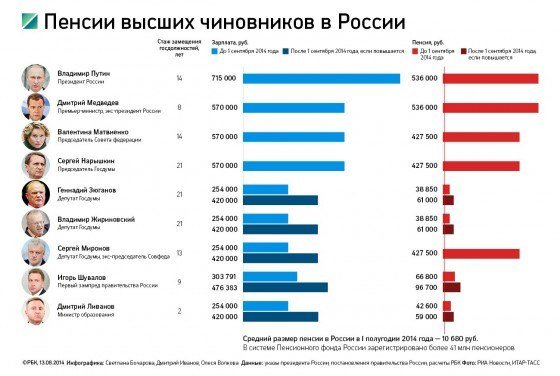
Parliamentarians who have worked for less than a year will not be able to apply for additional pension payments. At the same time, in particular, former Socialist-Revolutionary Gennady Gudkov, expelled from the State Duma on charges of running a business, can count on the maximum parliamentary pension - the law deprives only those convicted by the court of the right to additional payment.
Currently, 235 people receive additional payments to pensions due to persons holding government positions from the federal budget, the press service of the Ministry of Labor reported. This is a small but growing category of pensioners, notes an interlocutor close to the Pension Fund. The declining group are former Soviet functionaries. Now there are 199 such “personal pensioners,” the Ministry of Labor said in its response to RBC’s request. The ministry did not report how much the budget spends on benefits for former officials of Russia, the USSR and the RSFSR. The budget projections for 2015-2017 provide for the necessary funds, a representative of the Ministry of Finance said earlier, explaining why this line has been increasing over the years.
Initially, the salary of high-ranking officials was formed (from monetary remuneration and incentives) in such a way as not to show that officials earn a lot, explains civil service expert Vladimir Yuzhakov. Although salaries have increased and their size has long been no secret to anyone, the method of their formation has not changed - it needs to be changed, then pensions will change, the expert believes. If the salaries of officials, as was sometimes declared, will be linked to the results of their work, then pensions should be linked to them, says Yuzhakov.
Who in Russia receives the largest pension in 2020?
The study of pensions for officials and deputies of the Russian Federation should begin with the income of the former deputy prime minister, who is currently retired - his pension can vary from 50,000 to 88,000 rubles. Ministers at the federal level have state aid in the amount of 44,000 - 78,000 rubles, depending on merit in their work.
Despite the fact that pensions are assigned according to federal documents, former officials on vacation are supported by no one else but ordinary Russians, who contribute their hard-earned money to the regional budget in the form of taxes.
What kind of pension Russian deputies have is easy to find out by reading the laws. The Pension Fund determines the provision of ministers and parliamentarians, which depends on the base salary of 81,500 rubles. It’s easy to calculate that state aid reaches 18,000 rubles, which doesn’t seem like much. But the point is that the additional payment is 3 times more than the pension itself; in 2020, the bonus reaches 4,4000 - 77,000 rubles. In total it comes out to 90,000 rubles.
As for the President of the Russian Federation, his pension reached 536,000 rubles; it is interesting that in 2020 V. Putin doubled his earnings - now his salary reaches 715,000 rubles. The Prime Minister can claim the same amount.
What is the pension of Muscovites?
The capital requires a lot of expenses, everything here costs more than in the provinces. Therefore, the government pays slightly more aid to Muscovites. The average pension in 2020 in the capital is 15,000 rubles. The territory of Moscow is constantly expanding, which means that more and more pensioners are being added. New old people have to add additional amounts, otherwise the pension will not be equal to the minimum amount of state support in force in Moscow.
The highest incomes based on length of service again go to those who have ever been in the civil service. Experts believe that for better performance of city heads, it is necessary to tie pensions to the following performance indicators of officials:
- average pension in the facility, which was led by the head of the city;
- what are the achievements and results of his work;
- work experience and important factors.
Public opinion
In connection with the introduction of pension reform, a reduction in pension payments for deputies by 10%, as well as an increase in the length of service that they had to earn to receive a pension supplement in the future (from one year to five, and three years to ten, respectively), members The State Duma are showing their dissatisfaction. Of course, now they not only need to work for such a period of time that can be considered acceptable, but also receive less money for it than before.
At the same time, the decisions of the majority of these individuals, as well as their proposals and statements regarding such an unfair attitude towards them, are becoming less and less popular among citizens, since even one comparison of the average salary of an average deputy and an ordinary Russian is already depressing:
- Thus, the deputy will receive a pension in the region of 64 thousand rubles;
- an ordinary person in the region of 14 thousand rubles.
We think it is not worth mentioning that in Russia there are also those pensioners who receive a pension, the amount of which is less than the subsistence level in Russia (on average 8-9 thousand rubles).
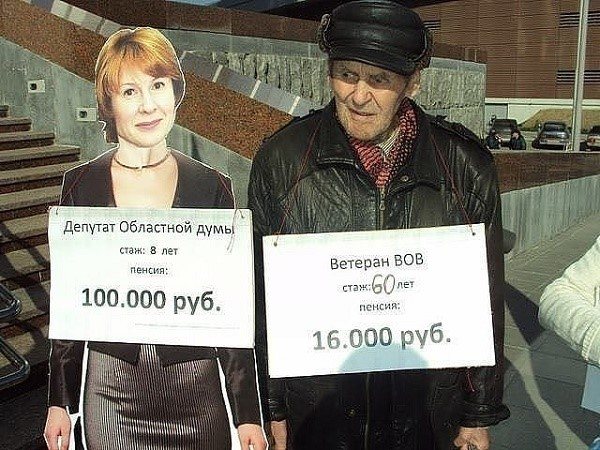
The unfair attitude of the state towards the ruling class and ordinary people causes indignation among the population on a regular basis
Such citizens are even given a social supplement from the state treasury, which allows them to “get” funds up to the mentioned minimum. Considering that in most regions today half of this amount is spent only on paying for utilities, it is becoming increasingly unclear why the work of deputies is so difficult and dangerous, compared to workers in mines, factories, hospitals, schools, etc.
